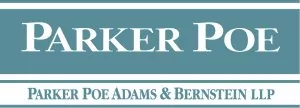A divided panel of the United States Court of Appeals for the Sixth Circuit held that class action waivers in employment-related arbitration agreements violate the National Labor Relations Act (NLRA) and thus are unenforceable. Nat'l Labor Relations Bd. v. Alternative Enterm't, Inc., No. 16-1385 (6th Cir. May 26, 2017). This decision deepens the circuit split on the enforceability of class action waivers in employment disputes, an issue the Supreme Court will take up during its October 2017 term.
The Sixth Circuit's decision in Alternative Entertainment aligns with the Seventh and Ninth Circuits' decisions in Morris v. Ernst & Young LLP, 834 F.3d 975 (9th Cir. 2016) and Lewis v. Epic Systems Corp., 823 F.3d 1147 (7th Cir. 2016). These cases hold that there is no conflict between the NLRA and the Federal Arbitration Act (FAA) because the "savings clause" in the FAA provides that arbitration agreements are "enforceable, save upon such grounds as exist at law or in equity for the revocation of any contract." To the Sixth Circuit panel, because class action waivers violate the NLRA's guarantee of employees' right to engage in "concerted activity," they are not enforceable under the FAA's savings clause.
On the other side of the split are the Second, Fifth, and Eighth Circuits. See Murphy Oil USA, Inc. v. NLRB, 808 F.3d 1013 (5th Cir. 2015); Owen v. Bristol Care, Inc., 702 F.3d 1050 (8th Cir. 2013); Sutherland v. Ernst & Young LLP, 726 F.3d 290 (2d Cir. 2013). These circuits have focused on the FAA and its liberal policy requiring enforcement of arbitration provisions, holding that the FAA savings clause does not apply and that the NLRA does not contain a clear congressional command to override the FAA. In these circuits, mandatory class action waivers are enforceable in employment disputes.
The Sixth Circuit's divided opinion in Alternative Entertainment reflects the broader circuit split. Following the Seventh and Ninth Circuits, the majority held that class action waivers violate employees' right under the NLRA to engage in concerted activity. Invalidating these provisions falls within the savings clause of the FAA, the majority reasoned, because any contract—not just an arbitration clause—that restricts concerted activity is unenforceable. On the other hand, in dissent, Judge Jeffrey Sutton argued that the FAA requires the enforcement of arbitration agreements according to their terms, and the right to engage in concerted activities does not encompass the right to file a class action or other collective procedures.
Earlier this year, the Supreme Court granted certiorari in three cases to take up this issue: the Seventh Circuit's Epic Systems decision, the Ninth Circuit's decision in Ernst & Young decision, and the Fifth Circuit's Murphy Oil decision. The cases have been consolidated for argument during the Court's October 2017 term. In light of the ubiquity of class action waivers in employment agreements, the Supreme Court's decision will have a significant impact on employment-related class and collective actions.
This Client Alert is intended to inform readers of recent developments in the field of class action & derivatives suits. It should not be considered as providing conclusive answers to specific legal problems.


